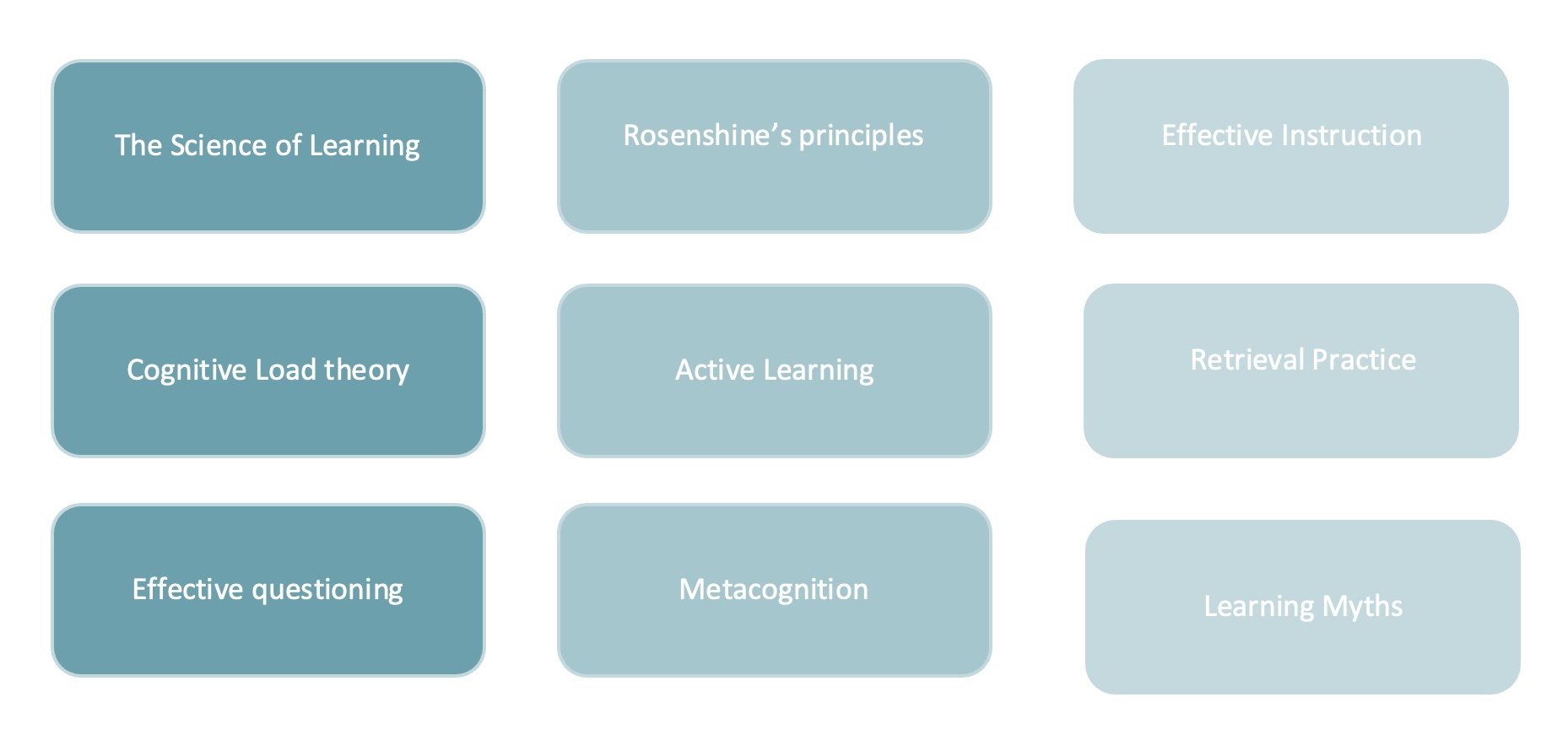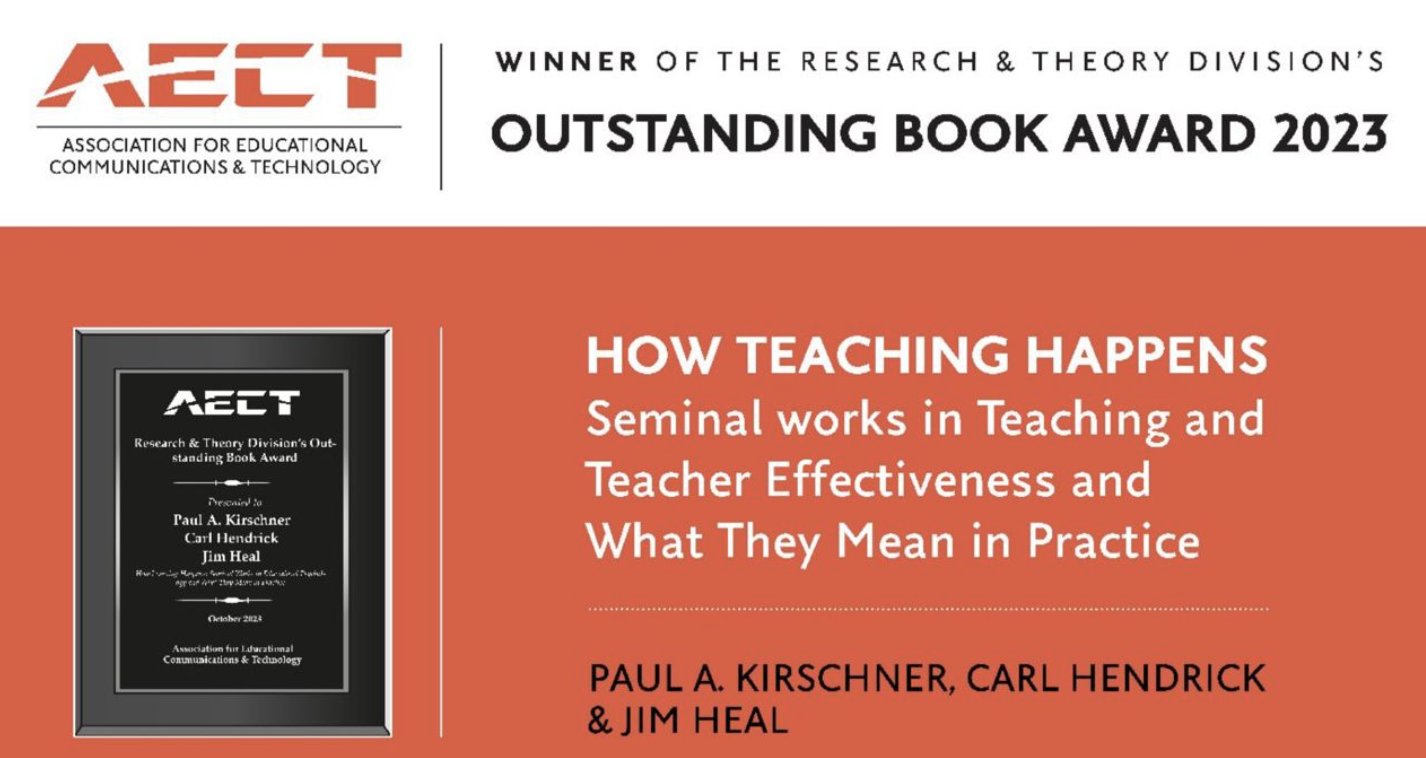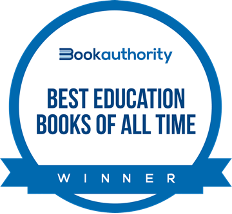Professional Development
This page provides a comprehensive overview of the outline of the program's genesis of How Teaching Happens & How Learning Happens, its core content, adaptable implementation options, and the benefits it offers to the school team. It concludes with practical details for smooth program execution, including scheduling and logistics.
Do you have any questions? Do you want to find out more about the program and the possibilities? Please contact us.

Introduction
In today's rapidly evolving educational landscape, schools are often faced with the daunting challenge of keeping pace with the latest pedagogical strategies while also meeting the diverse needs of their students. Many teachers and school leaders feel they want to engage with research and evidence-based strategies but don’t know where to start. In addition, many professionals have had ineffective CPD based on neuromyths or unproven methods which can waste valuable time in the classroom.
Our professional development training directly addresses this challenge by equipping educators with evidence-based practices and insights from the science of learning. By embracing our program, schools can transform their classrooms into dynamic, inclusive environments where every student is engaged, understood, and empowered to reach their full potential. By leveraging the science of learning, we guide teachers and school leaders through the process of enriching their instructional practices, ensuring that every student benefits from a balanced, informed, and dynamic educational experience.
Based on the award winning books ‘How Learning Happens’ and ‘How Teaching Happens’, we offer a wide range of professional development options and can design a bespoke programme to meet your training needs. Training will be designed and led by the authors of the books, prof. dr. Carl Hendrick and prof. dr. Jim Heal.
Our training programs are meticulously designed to bridge the gap between cutting-edge research and classroom application, empowering educators to harness the full potential of their teaching practices. By delving into the core principles of cognitive science and educational psychology, we provide you with the tools and strategies needed to elevate and enhance learning outcomes, and cultivate an environment of continuous improvement.
Who will benefit from this training?
-
Aspiring, novice, and experienced teachers
-
School leaders supervising teaching and learning
Professors


The program
Learning happens when teachers carefully design lessons to align with the way the brain processes information, considering concepts such as cognitive load theory, which suggests that our working memory has a limited capacity. Teachers and schools can facilitate learning by breaking down complex information into smaller, manageable chunks and by combining materials thoughtfully to avoid overwhelming students.
Essentially, learning is optimized when instructional methods align with our cognitive architecture, enabling students to process and understand new concepts without overloading their mental capacity. This training will focus on the large body of research from the science of learning which teachers can harness to improve their practice. Among the topics included are:
The Science of Learning
The Science of Learning delves into the interdisciplinary understanding of how humans learn, drawing from cognitive science, psychology, neuroscience, and education research to optimize teaching methods. By grounding their training in the Science of Learning, teachers will learn:

To apply evidence-based strategies that align with how the brain processes,

Retains, and retrieves information, thereby enhancing student engagement and achievement

This approach benefits teacher training by providing insights into the mechanisms of memory

The role of attention and motivation andthe impact of emotions on learning

Equipping teachers with the knowledge to create more effective, inclusive, and adaptive learning environments
Cognitive Load Theory (CLT)
CLT revolves around the understanding that the human brain has a limited capacity for processing new information, highlighting the importance of instructional design that optimizes learning. Through training on CLT, educators will learn to design lessons that reduce unnecessary cognitive load, allowing students to focus more efficiently on integrating new information with their existing knowledge. This approach benefits teacher training by offering:

Strategies to chunk complex information

Use multimedia effectively

Encourage problem-solving skills in a way that enhances learning without overwhelming students

Ultimately leading to a more effective and enjoyable learning experience
Effective Classroom Questioning
Effective Classroom Questioning involves the strategic use of questions to stimulate student thinking, assess understanding, and promote deeper learning. Through training in this area, educators will learn to craft questions that encourage critical thinking, elicit detailed responses, and engage students in meaningful discussions. This skill benefits teacher training by providing techniques for using open-ended questions, wait time, and Socratic questioning to create a more interactive and reflective learning environment. By mastering effective classroom questioning, teachers can:

Enhance student participation

Facilitate a deeper understanding of the subject matter

Foster a culture of curiosity and lifelong learning
Rosenshine's Principles of Instruction
Rosenshine's Principles of Instruction offer a research-based foundation for effective teaching, emphasizing clear, structured, and well-paced lessons that enhance student understanding and retention. By integrating these principles into their training, educators will learn to deliver more impactful lessons through guided practice, regular reviews of material, and providing immediate feedback, thereby improving student outcomes. Teachers will gain insights into:

How to effectively scaffold instruction

Monitor student progress

Adapt teaching strategies to meet diverse learning needs

Equipping them with the tools to foster a more engaging and responsive classroom
Metacognition
Metacognition, or the awareness and understanding of one's own thought processes, plays a crucial role in learning, enabling educators to teach students how to think about their thinking. This concept benefits teacher training by equipping educators with strategies to help students assess their learning strategies, recognize their strengths and weaknesses, and adjust their approaches to learning accordingly. Through training in metacognition, teachers will learn to:

Foster a reflective learning environment where students are encouraged to set goals

Monitor their progress

And reflect on their learning journey, leading to improved problem-solving skills and academic performance
Retrieval Practice
Retrieval Practice focuses on the strategy of recalling information from memory, which has been shown to significantly enhance long-term learning and understanding. By incorporating retrieval practice into their training, educators will learn how to design activities and assessments that encourage students to recall information frequently, thereby strengthening memory and facilitating deeper learning. This approach benefits teacher training by:

Offering techniques for embedding regular low-stakes quizzes

Reflective prompts, and active recall tasks into lessons, which not only boosts students' retention of material but also prepares them to apply knowledge more effectively in new contexts
Active Learning
Active Learning emphasizes the importance of engaging students directly in the learning process through activities that encourage participation, problem-solving, and critical thinking, rather than passive absorption of information. By incorporating active learning strategies into their training, educators will learn to design lessons that foster student interaction, collaboration, and reflection, which research shows can significantly improve understanding and retention of material. This method benefits teacher training by offering practical techniques for:

Creating a dynamic classroom environment where students are more involved in their learning journey

Leading to enhanced motivation

Deeper understanding

The development of higher-order thinking skills
Learning Myths and Misconceptions
Learning Myths and Misconceptions challenge the widespread but unsupported beliefs about learning that can hinder educational practice, such as the idea of "learning styles" or the belief that we only use 10% of our brains. By debunking these myths through teacher training, educators will learn to base their teaching strategies on evidence-based research rather than pseudoscientific concepts, leading to more effective and efficient teaching methods. This topic benefits teacher training by:

Encouraging critical thinking about pedagogical approaches

Promoting the use of practices that have been scientifically validated to improve learning outcomes

Teacher will gain the skills to identify and reject unfounded claims, fostering a more informed and reflective approach to teaching that is grounded in the actual science of learning

Get in touch with us
We can offer:
-
One (half)day training or keynote
-
Regular support on a targeted improvement aim
-
Online support over a year
-
We start in August/September or January/February
Do you have any questions? Do you want to find out more about the program and the possibilities? Or do you simply want to talk about How Teaching Happens & How Learning Happens? Please contact us.
Expanding Our Reach: Empowering Parents on the Science of Learning
In addition to our comprehensive training programs for educators, we recognize the vital role that parents play in their children's education. We are excited to offer specialized sessions designed for parents who wish to deepen their understanding of the science of learning, acquire effective study skills, and learn the best strategies to support their children’s academic journey.
Our parent-focused training provides:
- Insights into How Children Learn: Leveraging the latest research from cognitive science to help parents understand how children process and retain new information.
- Practical Study Skills for Home: Guiding parents on how to help their children develop robust study habits that enhance learning efficiency and academic performance.
- Strategies for Effective Support: Offering tools and advice on how to create a supportive home learning environment that aligns with the educational practices used in schools.
Additionally, we address contemporary challenges in education that intersect significantly with daily life:
- Managing Screen Time: Teaching parents strategies to balance educational and recreational screen time, ensuring that digital interactions support rather than hinder cognitive and social development.
- Guidance on Smartphones and Technology: Providing practical advice on the responsible use of smartphones and technology, including setting appropriate boundaries and understanding the implications of digital distractions on learning.
- Developing Self-Regulation Skills: Equipping parents with techniques to help their children develop self-regulation skills crucial for academic and personal success. This includes managing impulses, maintaining focus, and developing a structured approach to tasks.
By participating in our sessions, parents will not only gain valuable skills but also become proactive partners in their children’s education, ensuring consistency between home and school learning strategies. This holistic approach aims to foster an environment at home that supports the educational frameworks and cognitive development strategies discussed in schools.
See more here for a recent piece in the Times which covered how we are currently working on this programme with one school in London.


So often I’ve been asked to recommend a starting text for educators interested in the workings of the mind―now I have one. The text Kirschner and Hendrick offer alongside each seminal article does a wonderful job of situating the content in the broader scientific context, and in the classroom.
Daniel Willingham, Professor of Psychology and Director of Graduate Studies, University of Virginia
Teachers are rightly encouraged to base their practice on research - but education research is a huge field and it's hard to know where to start. This book provides the answer: it's valuable in its own right as a summary of some key research papers, and it's also a great starting point for further reading and research.
Daisy Christodolou, Director of Education at No More Marking
As the volume of research into psychology and education grows, it becomes ever harder for researchers, let alone teachers, to keep up with the latest findings. Moreover, striking results often turn out to be difficult, or impossible to replicate. What teachers need, therefore, is good guidance about research that has stood the test of time, and practical guidance about how these well-established findings might be used to inform teaching practice, and this is why this is such an extraordinary, wonderful and important book. Paul Kirschner and Carl Hendrick have selected the most important research publications in the psychology of education, and, for each publication, they have provided a summary of the research, the main conclusions, and a series of practical suggestions for how the findings might inform teaching practice. I know of no other book that provides such a rigorous, accessible and practical summary of the last fifty years of research in educational psychology, and anyone who wants to understand how research can improve teaching needs to read this book. Highly recommended.
Dylan Wiliam, Emeritus Professor of Educational Assessment, University College London
It's hard to overstate just how fabulous this book is; a book I've wanted to exist for years and now here it is. A judicious and comprehensive selection of seminal research papers presented by two expert communicators, this is absolutely superb - from the mouth-watering list of contents, and through each of the chapters. I meet teachers in schools every week who, on hearing about various findings from research, feel liberated, enlightened with a whole new perspective on the problems they wrestle with in their classrooms. Teachers are busy - often overwhelmed - and all too frequently have not yet found the time or had the opportunity to engage with research that underpins the profession they've committed their lives to. This book is going to change that for a lot of people. The format is excellent, presenting the original papers alongside insightful commentary and key practical recommendations; a brilliant idea executed with style! Every school should have this book and every teacher should read it.
Tom Sherrington, education consultant; author of The Learning Rainforest and Rosenshine's Principles in Action
With the increasing volume of calls for education to become more evidence based, teachers everywhere have shaken their heads and wondered where on earth they’re supposed to find the time to locate, read and evaluate the ever-increasing acreage of research papers out there. Worry no more. In How Learning Happens: Seminal Works in Educational Psychology and What They Mean in Practice, Kirschner and Hendrick have done the hard work so that you don’t have to. The volume you have in your hands has compiled some of the most important and prominent research papers in the field of education and distilled them into a form that is genuinely useful to anyone chipping away at the chalk face. But, not only is this a resource of unparalleled utility, it’s also a fascinating and world-enlarging read.
David Didau, author of Making Kids Cleverer
In these increasingly evidence-informed days, we are encouraged to be familiar with the research literature and reflect on the finding from within our own frames of reference. This book provides an interesting glimpse into some of the studies that have been influential in the thinking of the authors.
For the research geek, it is a thought-provoking read. It will be adored by many and I hope it introduces some to the complexity of psychology and the study of cognition.
Megan Dixon, TES
Future historians of education will look back on this period as a Renaissance; a time when dogma and orthodoxy were being challenged, and gate keepers, priesthoods and shamans felt the ground shift beneath their feet. The sleep of reason has bred monsters of pedagogy, and they have been fattened and nurtured by the relative ignorance of the teaching profession. Not a general ignorance, but a specific one: ignorance of the evidence bases behind the claims made in education. This Renaissance has been accompanied by an evolution, as teachers and academics reach out to one another and seek sincere, authentic dialogue. But, unless we stand on the shoulders of giants who have gone before us, each generation is doomed to rediscover what their ancestors painstakingly uncovered. For the health of the profession, we need the best of what we know in one place, so that successive generations of educators can carry on from their ancestors, and carry the conversation into the future rather than tread water endlessly.
This book is the perfect resource with which to do so. I can give no higher accolade than to say that every teacher should be familiar with the research it represents, its chapters should be required reading on every teacher induction course, and no teacher should account themselves a professional until they can demonstrate its acquaintance. I wish I had read it in the infancy of my career.
Tom Bennett, Founder ResearchED
Get in touch
Find out more about the program and the possibilities.

